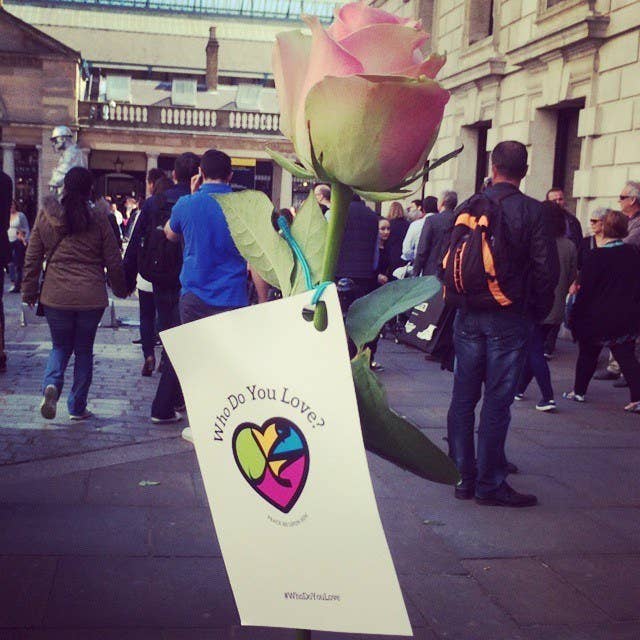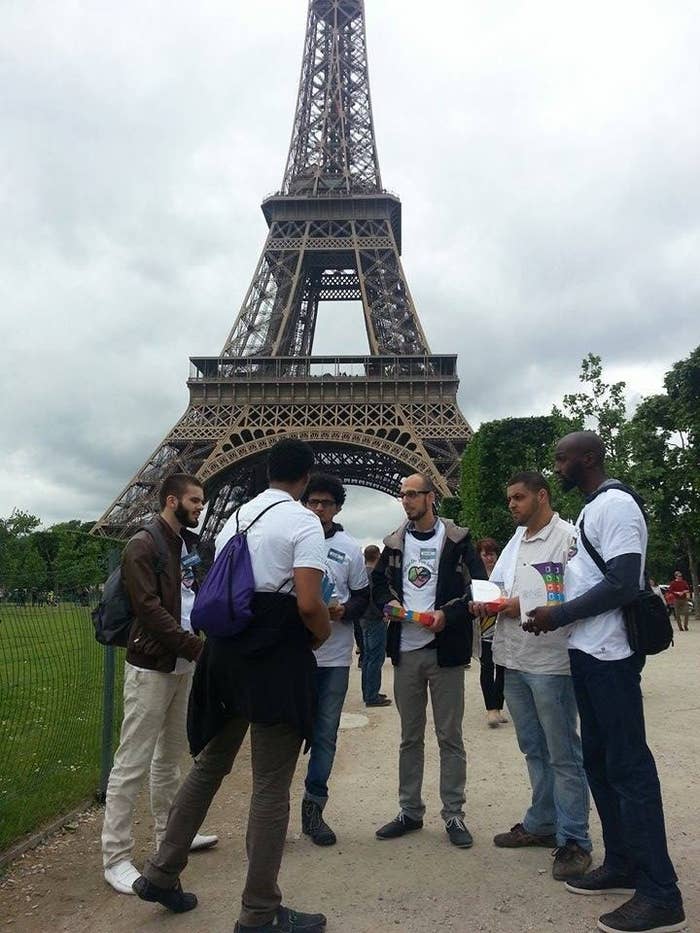
With cards and roses being distributed to members of the public in some of the busiest parts of central London, many would think it was 14th February.
To some it was a mere proselytizing activity, whilst this may be true to a certain degree, the Islamic Education and Research Academy's (iERA) most recent "Who Do Love" campaign was aimed at educating the wider non-Muslim society about who the Prophet Muhammad was, explain why Muslims love him and to eliminate the perception fanned by the media and politicians that Muslims simply do not do "enough" to reach out and integrate with the wider society. The head of education and research at iERA, Hamza Tzortzis explained "we simply wanted to positively engage with our brothers and sisters in humanity and share the love."
iERA is a UK-based charity dedicated to providing a better understanding of Islam in order to create a more "peaceful and harmonious society."
One of their past campaigns, which was launched in the aftermath of the attacks on Charlie Hebdo in Paris, was the "Don't Hate, Debate" campaign aimed at creating a platform for people of all faiths and none to engage in "positive and compassionate dialogue, without resorting to insults as a starting point of communication."
The "Who Do Love" campaign is an unprecedented endeavor with Muslims from 52 countries across 6 continents registering for the "Global Messenger Day" on Saturday 16th May, making it one the biggest dawah days in modern history. iERA volunteers in the UK were stationed throughout the day at swarming London hot spots, Leicester Square, Covent Garden and Trafalgar Square.
In their white logoed t-shirts and welcoming smiles, volunteers stood in bustling crowds under the warm May sunshine, handing out cards and roses to members of the public in the hopes of striking up conversations. It was an opportunity for non-Muslims to engage and ask those questions which have submerged the minds of so many about Islam and Muhammad since the violent actions of ISIS militants, attack on Charlie Hebdo and Garland shootings where satirical caricatures of the Prophet Muhammad provoked a violent reaction and negative opinion of Muslims.
Mr Tzortzis said "we were received with warmth and great interest and were told by members of the public to continue with this type of work as it supports community cohesion and challenges irrational fear of Islam and Muslims."
This is an incredibly timely campaign as Islamophobia has been on the rise following recent terror attacks done in the name of Islam, the government's recent counter terror measures which have served to divide British society and cause many to view Muslims with suspicion and distrust and the never ending war on terror, highlighting the pertinence of work like that of iERA's to overshadow these damaging labels and positions.
I spoke to Betty Grove a devout Christian, who said she has studied Islam in great depths and even read the biography of the Prophet Muhammad. "Western society allows individuals to exchange different ideas and we are free to do so, I think it's great that these individuals are being vocal and public about their faith". However she was still unsatisfied by the answers or lack of answers she received from some of the volunteers when they were asked why she should follow Muhammad. She also felt disagreement of ideologies should be allowed and those going out on the streets like iERA must accept criticism without feeling insulted and this includes critique of the Prophet Muhammad. She went on to say that the Muslim community is not doing enough to speak up and challenge stereotypes people have formulated about Islam, following the actions of extremist groups like ISIS and welcomed campaigns like "Who Do You Love?"
After some conversations of a similar nature, it became apparent that whilst not all non-Muslims think of all adherents of Islam as "Jihadi Johns" there still remains fundamental chasms and lack of understanding as to why Muslims feel offended by negative depictions of a man they consider their final messenger, signifying the necessity of campaigns like "Who Do Love?" to educate the wider non-Muslim community and build bridges between different faiths and cultures.
iERA also reached out to the cyber world by posting pictures on social networking sites Facebook, Instagram and tweets on Twitter by using the hash tag #WhoDoYouLove
Whilst this campaign may be viewed by some as futile, it was refreshing to see amiable encounters between Muslims and non-Muslims, a sight which has become rare and not documented frequently, partly due to mainstream media's schema to only publish stories of a maligning nature.
Mr Tzortzis went on to describe "Global Messenger Day" as a "great success" and the organization aspires to continue to spread the "Who Do You Love?" campaign.


